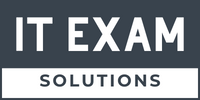DRAG DROP - You have a hybrid deployment between a Microsoft Exchange Online tenant and an on-premises Exchange Server 2019 organization. The deployment contains user mailboxes hosted on-premises and in the cloud. The deployment contains 20 public folders hosted in Exchange Online. You need to ensure that users who have mailboxes hosted on-premises can access the public folders. Which three cmdlets and scripts should you run in sequence? To answer, move the appropriate cmdlets and scripts from the list of cmdlets to the answer area and arrange them in the correct order. Select and Place:Suggested Answer:
Step 1: Import-PublicFolderMailboxes. ps1 First download the scripts. 1. Download the following files from Mail-enabled Public Folders - directory sync from EXO to On-prem script. Import-PublicFolderMailboxes.ps1 (ImportPublicFolderMailboxes.strings.psd1 Sync-MailPublicFoldersCloudToOnprem.ps1 Sync-MailPublicFoldersCloudToOnprem.strings.psd1) 2. Save the files to the local computer on which you'll be running PowerShell. For example, C:PFScripts. Step 2: Sync-MailPublicFoldersCloudToOnprem.ps1 Configure directory synchronization. Running the script Sync-MailPublicFoldersCloudToOnprem.ps1 will synchronize the mail-enabled public folders between Exchange Online and your Exchange Server on-premises environment. Step 3: Set-OrganizationConfig -PublicFoldersEnabled Remote Finally configure on-premises users to access Exchange Online public folders. Enable the Exchange 2013 on-premises organization to access the Exchange Online public folders. Set-OrganizationConfig -PublicFoldersEnabled Remote Reference: https://docs.microsoft.com/en-us/exchange/collaboration-exo/public-folders/set-up-exo-hybrid-public-folders This question is in MS-203: Microsoft 365 Messaging Exam For getting Microsoft 365 Certified: Messaging Administrator Associate Certificate Disclaimers: The website is not related to, affiliated with, endorsed or authorized by Microsoft. The website does not contain actual questions and answers from Microsoft's Certification Exams. Trademarks, certification & product names are used for reference only and belong to Microsoft.
Please login or Register to submit your answer

